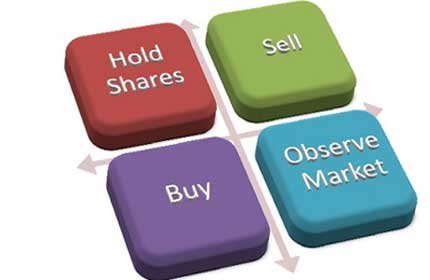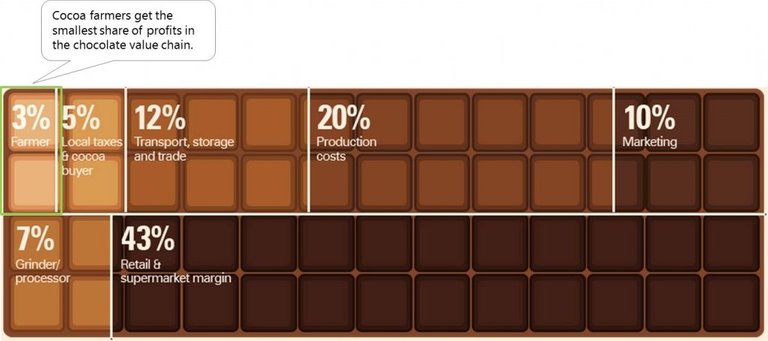Since the beginning of time, people had the need to have things that were not theirs. Whether it was food, clothes, shelter or decorations, each person had to exchange something for something in some way as even back then, things weren't free. Either you worked for what you wanted (or needed), or you had to trade for it.
It started very simply. For example, one person had meat and his neighbor had some bread. They shared their goods, trading a little meat for a little bread. The term for this is bartering. It did not take long for whole villages to get involved in trade. One person might have sold shoes. Someone else sold wool for instance, took care of people in return for food an clothes. A carpenter built houses or furniture in exchange for food.
Soon people started travelling beyond their villages to trade for things they could not produce at home. People who lived far from the sea wanted fish to eat. Other people wanted spices or salt or wine, which they could not find in their own country. This led to trading between countries.
People realized that bartering was not a convenient way to trade things. It was easier to give the other people something that they could use to buy other things. To start with, people used things like shells and stones for money until they found a way to make coins. This was the start of trading with money, which was like an agreement between people that this much money will be worth this much bread, or whatever else you wanted to buy.
Today, countries trade with one another using currency. This can be the money used in their home country.
It wasn't long before all countries switched to this way of trading as it was beneficial to everyone. By now, the whole world uses this way of trading and exporting goods and services from one country to another has become the most important thing next to breathing. Other than goods, food, electronics and technology, international trade is also necessary for exchanging skills and services. People are now able to train and gain new skills from the comfort of their own homes by trading with International training facilities. Doctors are being imported and exported from country to country to provide services that is essential for survival.
Trading should, however, be done in a fair way. This happens when everyone involved in producing, manufacturing and selling the product gets a fair share of the profits. Unfortunately, we live in a greedy world where fair trade does not take place very often. Trade is often unfair and some people get a much bigger share than they should, while others do not earn enough to live on. Today, unfair trade is the main reason for the development gap between rich and poor countries.
When workers are being imported into other countries to work for very low wages, then they are exploited because of a trade that is unfair. Often times, these workers are made to live in very poor conditions and they are unable to leave because they need those low wages for survival and to care for their families.
Goods are becoming more and more expensive every day. Let's compare a simple chocolate bar. If you create a bar of chocolate at home from beginning to end, you determine you own price that you want to sell the chocolate for and all profits would be yours. But if chocolate bars are manufactured in a factory in bulk, have a look to see who shares it's profits:
In the case of chocolate, cocoa is raw material which comes from the pods of the cocoa tree. It's the main resource in manufacturing chocolate. The plantation owner sells the beans to a cocoa trader to make a profit. The trader sells the beans to chocolate manufacturers to make a profit of his own before the cocoa is exported to other countries where import costs should be paid on them. In factories, ingredients such as sugar and milk are added to the cocoa which has to be manufactured with the help of machinery and many workers have to be paid salaries for their too. The finished product then has to be sold to wholesalers for their profit and the wholesaler sells it to shops and supermarkets to make his own profit too. We then buy the chocolate from the shop so that the retailer can make his own profit. The government then also takes their own share with a percentage of VAT on the retail price.
Activity:
Think a little:
Suppose the chocolate factories moved to the countries where the cocoa is produced:
- How would this add value to the resource?
- How would the people in the country benefit?
Resources & Extra reading:
Exchange and trade | Barter system history | Barter | The history of money | Rich and poor trading gap | Cocoa bean into chocolate



I must confess, your style of writing hooked me throughout the write-up. It's interesting to walk through history of how money and trading came to be what it is today.
However, not only do we trade physical goods and services today, we now trade attention. Thanks to the internet, and most especially blockchain like hive.blog.